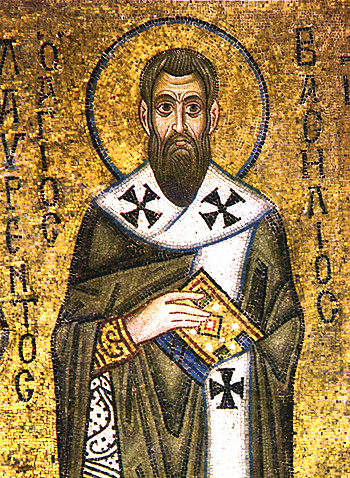 St. Basil the Great, a revered early Christian theologian and monastic leader, left a profound legacy that extends to the realm of education, offering timeless wisdom for Christian parents seeking to nurture their children's intellectual and spiritual growth.
St. Basil the Great, a revered early Christian theologian and monastic leader, left a profound legacy that extends to the realm of education, offering timeless wisdom for Christian parents seeking to nurture their children's intellectual and spiritual growth.
One of St. Basil's notable works, "To Young Men, on How They Might Derive Benefit from Greek Literature," encapsulates his views on education. In this treatise, he provides guidance to young men, and by extension, to parents and educators, on how to approach the study of secular subjects, particularly Greek literature. St. Basil emphasizes the importance of integrating classical education with Christian principles, creating a balanced educational experience that fosters moral and intellectual growth.
Central to St. Basil's educational philosophy is the belief that education should be a holistic endeavor that nurtures both the intellect and the soul. He asserts that education should equip individuals not only with knowledge but also with the moral virtues that align with Christian values. St. Basil's teachings underscore that education devoid of moral and ethical grounding is incomplete.
For Christian parents today, St. Basil's insights offer a compelling message. His emphasis on the harmonious integration of classical learning with Christian ethics and values resonates profoundly. This approach to education is a potent reminder that faith and knowledge need not exist in isolation but can coexist and enrich one another.
In considering the best educational path for their children, some Christian parents may find private Christian schooling to be a compelling choice. Private schools often prioritize the incorporation of Christian principles into the curriculum and daily life. They create an environment where faith is not merely a subject but a guiding principle that shapes every facet of education. This environment is something that government-funded public schools can never create or implement.
Conversely, it's worth noting that concerns have been raised by some regarding the lack of Christian principles in public education systems. Public schools may not, and typically cannot, consistently prioritize or integrate Christian values into the educational framework, prompting many parents to seek alternative educational options.
Therefore, embracing St. Basil's recommendations for private tutoring and educational opportunities that align with Christian principles becomes a persuasive and only optional choice. Private schooling, with its commitment to integrating education with Christian values, stands as an ideal way to nurture the intellectual and spiritual growth of children. It provides an educational environment where faith and knowledge coalesce seamlessly, equipping students to navigate the complexities of the world while remaining grounded in their faith.
In conclusion, St. Basil the Great's profound insights on education serve as a timeless guide for Christian parents. His teachings underscore the significance of a balanced education that marries faith with knowledge, virtues with intellect. These principles can guide parents in their quest to provide their children with an education firmly rooted in Christian values, ensuring that the next generation grows not only in wisdom but also in virtue and faith.